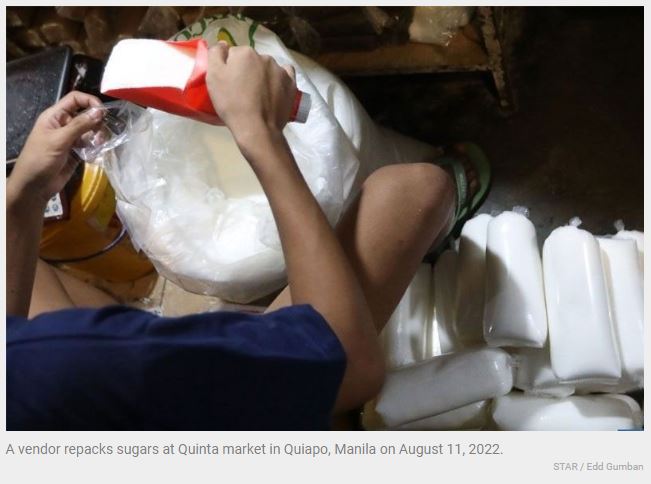Philippines: Sugar industry laments government plan to import anew
MANILA, Philippines — The sugar industry was caught off guard with President Marcos’ directive to import sugar anew, according to industry experts.
They said if there is really a need to control prices, importation should be through an order of the Sugar Regulatory Administration (SRA) Board rather than the Minimum Access Volume (MAV), which has lower tariff rates.
The importation of 64,050 metric tons (MT) of refined sugar through the MAV is yet to be tabled for discussion with stakeholders and at the SRA board.
“The SRA board has a scheduled meeting within this month. We’re just waiting for updates on everyone’s availability. For sure, that will be discussed,” SRA board member-millers’ representative Mitzi Mangwag said in an interview with The STAR over the weekend.
If there is really a need to import, this should be done through the SRA, which has a lower tariff than the MAV mechanism, she said.
“If they really want to import, then it should be through the SRA because SRA has the data and inventory for planning. The SRA plans out, calendars when sugar imports should come in,” Mangwag said.
The decision to import was made amid the continuing high prices of sugar, ranging from over P90 to P108 a kilo.
Mangwag lamented that the SRA will not be part of the discussion of importation under the MAV mechanism.
“MAV is a DA program. It’s not an SRA program,” Mangwag said, adding, however, that “if it is really needed, the SRA is ready to support whatever plans if it’s for the common good.”
According to Mangwag, the local sugar industry was caught off guard with the sugar importation order under the MAV, given the abundant supply of sugar due to the milling season.
“We were not even discussing it… because we have positive inventory in raw and refined sugar. There are even imported refined sugar that have yet to be withdrawn in warehouses, so we really have ample stocks,” she said.
The milling season is currently at its peak, making any discussion of importation a sensitive topic in the industry, especially for farmers, SRA board member-planters’ representative Pablo Luis Azcona said.
“Negros is running full swing. Batangas will open. Cagayan, northernmost Cagayan Valley will open also this January. So, at a time when everybody is opening and running at full, you talk about importation, so the normal reaction of the farmer is to oppose it mainly because we produce a lot more than what we can consume during milling season,” he said.
Azcona said the milling season only lasts for around six months in a crop year to produce the country’s sugar needs for the entire year.
“In those six months, the topic of importation is very sensitive… since generally we don’t follow the law of supply and demand. This drives speculation. If buyers know there will be importation, they will drag down prices,” he said.
With enough sugar in the pipeline, this makes importing sugar under the MAV “not timely,” Azcona said.
Under the memorandum order issued last month, the Department of Agriculture was directed to fast-track the importation of 64,050 MT of refined sugar through the MAV mechanism.
The main concern with the commodity is the annual inflation increment for sugars, confectionery and desserts that reached 38 percent in November.
However, sugar imports under the MAV are levied a tariff rate of 50 percent.
“But the MAV cannot answer that because the MAV is only 64,000 metric tons. It will not even make a dent in the supply and the tariff is high,” Mangwag said, noting that this could even mean higher refined sugar prices coming in under the mechanism.
On the high annual inflation, industry experts said this should be exhaustively studied because there are many factors that drive up prices.
“I think the increase in price of inputs was not entirely considered,” Azcona said.
In 2020, farmers were buying fuel at around P30 per liter while fertilizers were priced at less than P1,000 per 50-kilogram (kg) bag.
“Now, the prices of fuel and fertilizers have doubled. And the most painful for farmers in terms of expenses is the steep increase in labor due to high inflation. Sugar is blamed for the inflation numbers without really determining why,” Azcona said.
There are also sectors in the industry taking advantage of the situation to pocket profit despite ample supply in the market, they said.
Source: https://www.philstar.com/business/2023/01/09/2236214/sugar-industry-laments-government-plan-import-anew


 English
English




